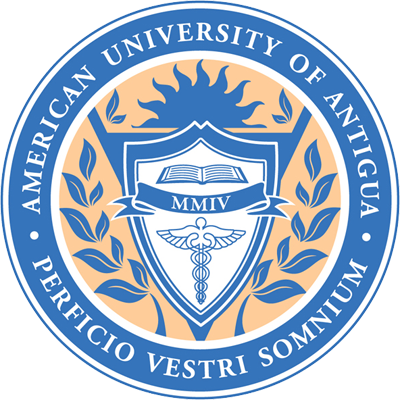Interview with American University of Antigua

By: Charyse Magdangal
1. What is your name, your professional title, and your relationship to University?
I am Katherine MacDonald, and I am the Associate Director of Admissions. I have
worked at the university for four years.
2. What are some essential problems in the healthcare field (clinically or policy-
wise) and how is your university working to change that?
The shortage of MDs. By 2025, there will be a shortage of close to 160,000 MDs. So
we are working to address that by having students come to Antigua and study, then
come back to the states to do their clinical rotations and residencies to answer that
shortage. Our mission is to provide a learner-centric experience for the learner and
provide them with the educational background that they need to become
professional medical doctors, and they will be able to answer the medical shortage
in whatever field they want, but most of our students go into Primary and Internal
Medicine.

Taken from The Huffington Post March 2015
3. What is a brief description of the application process?
You would go on our website and complete the application online, and then you
would request two letters of recommendation, all of your transcripts from every
institution you’ve attended (undergrad, grad, or even another medical school),
and have those sent to our New York office where your file is put together and
completed. Once your file is deemed complete, you will be contacted by
admissions where you will schedule an interview. There is no secondary
application.
4. Are there any special programs for which this medical school is noted?
Our FIU program. We have an affiliation with Florida International University. We
are the only Caribbean medical school that offers our students the opportunity
to actually finish the last two years at FIYU with their physicians, working in their
hospitals, and staying in their dorms, seamlessly without having to move. This
allows students to stay there, specifically.
5. What sets your curriculum apart from other Medical schools?
We are modeled directly after US medical schools, so the curriculum is identical.
But what sets us apart from other Caribbean schools would be that we are on a
semester basis. A lot of Caribbean schools are on trimesters. We found that
trimesters are not conducive to the students’ ability to learn the vast amount of
material in the short amount of time.
6. What are the opportunities for research?
We do, and those are set up between the students and their professors. So when
students come back from breaks, they have 6-8 weeks in between. We expect
them to take half of that time and do what we call enhancement. That would be
research or shadowing- something that would keep them connected and
immersed in medicine.
7. So you said that students have to interact with their professors. Is there a
mentor mentee program?
We have the EED program, the Educational Enhancement program. That
program will provide educational resources to students. As far as interactions
between the students and the faculty, it is different from anything I’ve ever seen.
Because the island is only 14 miles wide, they see their professors all the time.
So the professors have created a support system for the students were they are
really accessible almost 24-7.
8. Is the academic environment competitive, more laid back, or a family?
It’s definitely competitive because the curriculum is very rigorous, but the support
systems that have been developed because you are in another country is more
nurturing.
9. How do clerkships work?
The students are sent back to the states, and faculty will help place them.
Except if they place for the FIU program, which is based on GPA and other
criteria.
10. How are students graded?
We have fail, pass, and high pass.
11. How is the transition to studying in another country?
It is a seamless transition. Everybody speaks English, so you will not have to learn
another language. My students have really enjoyed it. It’s a tranquil
environment, and students have the opportunities to immerse themselves
because they are on an island.
12. Do you offer housing?
We do offer housing. We have three tiers, and they are price-point based. So it
depends on the accommodations and amenities they want while they’re there.
13. What are the current tuition and fees?
The total cost is around $171,000 for four years.
14. What does a well rounded student mean to you?
We look for students who are GPA competitive, although we don’t have a cutoff
GPA, we don’t have an MCAT score we are looking for. We evaluate students
based on grades, based on volunteer work, based on any student government
positions they’ve held. We’re looking at everything, not just your grades and
your MCAT.
15. Is there any special advice you would give to someone applying to your school?
Make sure you do your research, and you have done some shadowing in
different areas of medicine. This is so that you know this is what you truly want
to do. It should be your passion.
